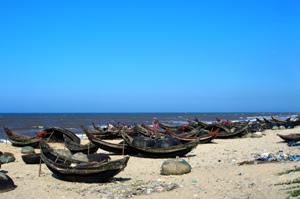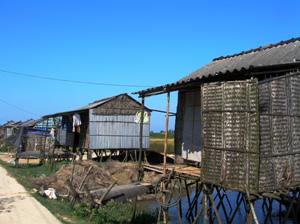Nguyen Van Quan
Other projects
24 Jul 2005
Experiment of Coral Transplantation as the Tool for Rehabilitation of Degraded Coral Reefs in Ha Long Bay, Vietnam
14 Dec 2007
The Status Exploitation and Trade of the Keystone Reef Animals in Central Provinces, Vietnam
This proposed project aims to assess the state and trends in ecosystem services associated with marine and coastal systems; impact factors; how they support the livelihoods and well-being of human societies and particularly poor communities in Thua Thien Hue; and the threats, opportunities and constraints to reverse the degradation processes.

Ecosystem services are the benefits people obtain from ecosystems. These include provisioning services such as food, water, timber, and fiber; regulating services that affect climate, floods, disease, wastes, and water quality; cultural services that provide recreational, aesthetic, and spiritual benefits; and supporting services such as soil formation, photosynthesis, and nutrient cycling (Sarukhan J and Whyte A, 2005).

The human species, while buffered against environmental changes by culture and technology, is fundamentally dependent on the flow of ecosystem services. Thua Thien Hue province, a coastal province located in central Vietnam, is facing up with the reduction of the ecosystem services and related natural hazards that directly affect to the life of poor people assemble around the coastal area.
This research will base on both natural aspects and social studies to deal with the problems of how to sustain the natural resources for the future generation. This proposed project aims:
1. Having a database about the current status exploitation of the natural resources, human and natural threats that influence on the services of typical marine/coastal ecosystems (coral reefs, mangrove forest, seagrass beds and lagoon system) in Thua Thien – Hue province.
2. Assessment of the linkages among marine/coastal ecosystem services, their benefits and values with the mitigation of natural hazards and poverty reduction of the local communities depending on exploitation, utilization of the ecosystem services.
3. Enhancing the local knowledge about understanding how the ecosystem works and influencing their lives, involving the local people to joint the natural conservation activities in the future.